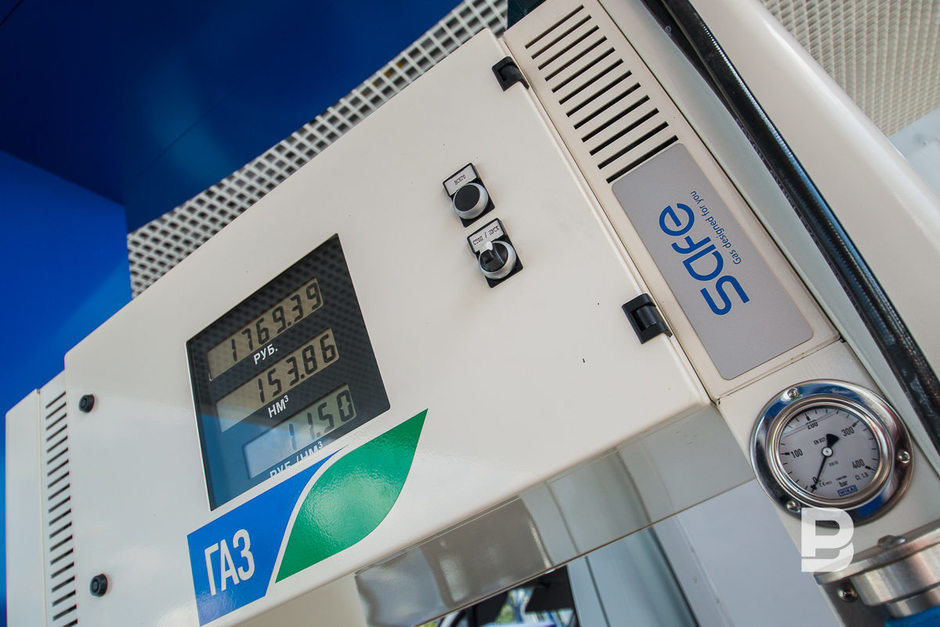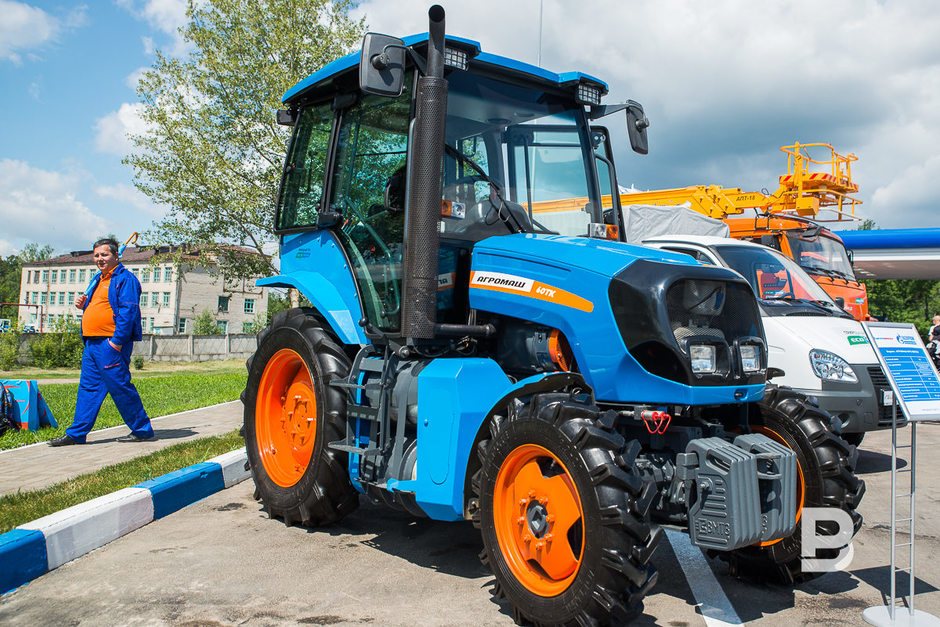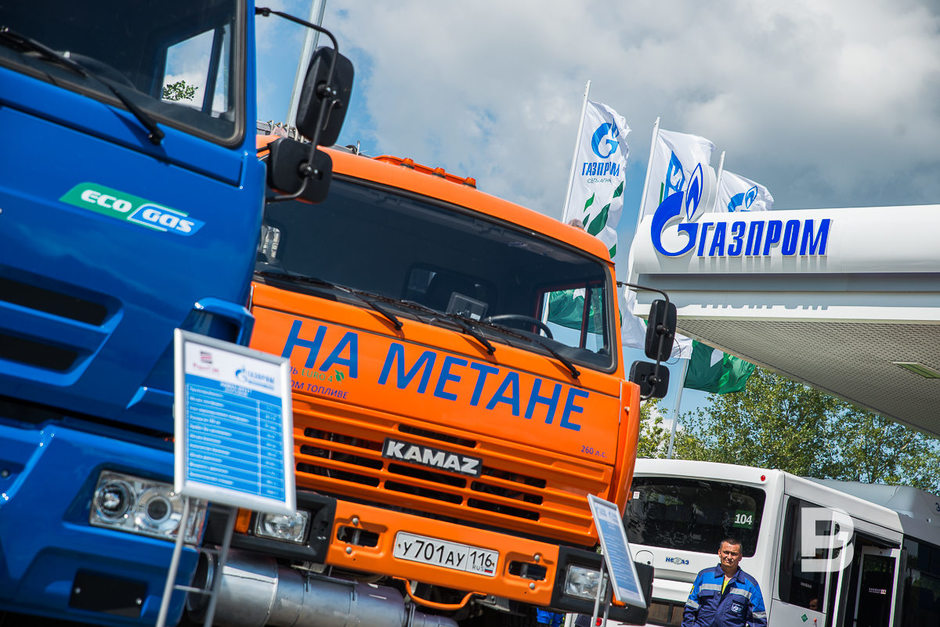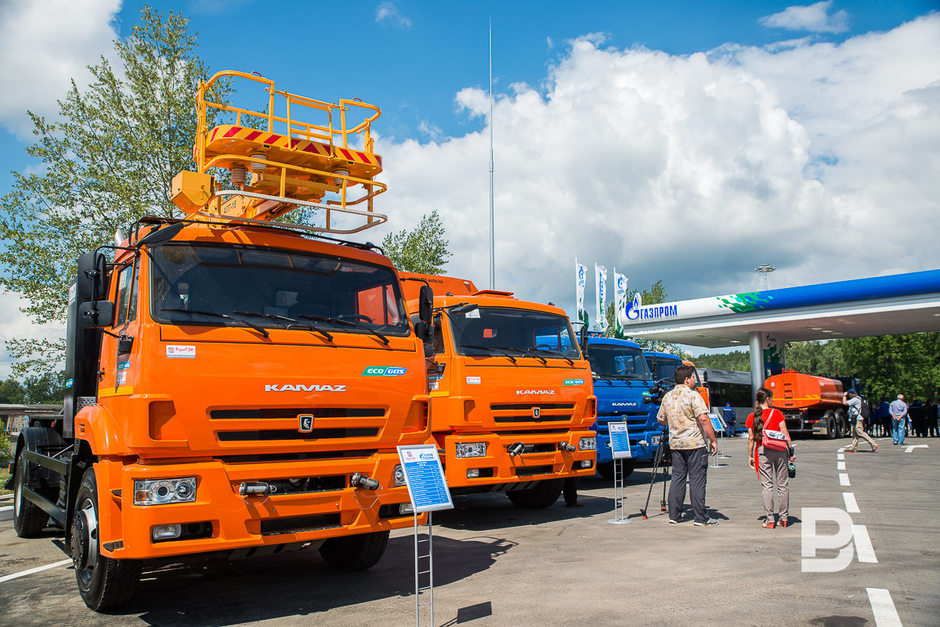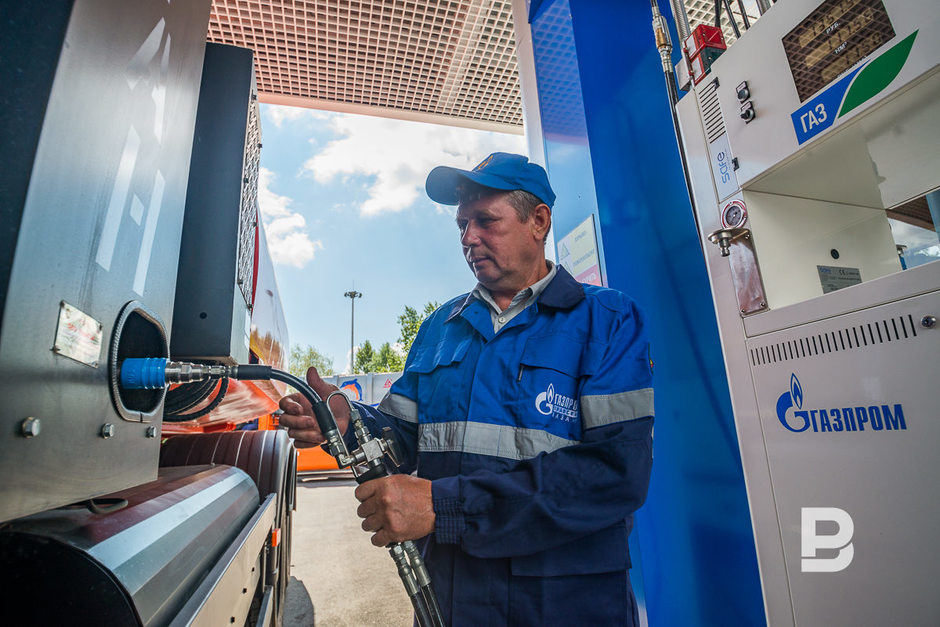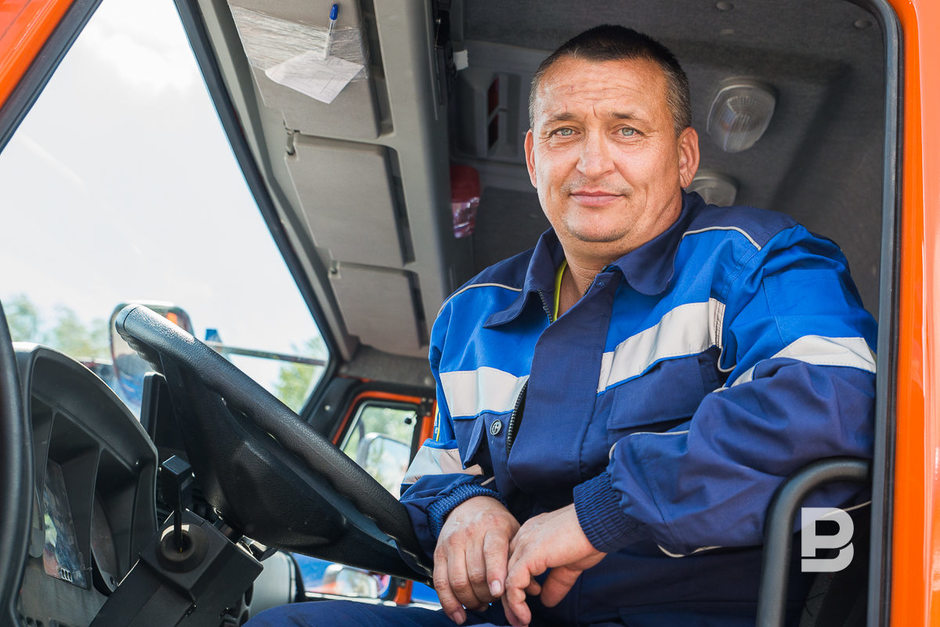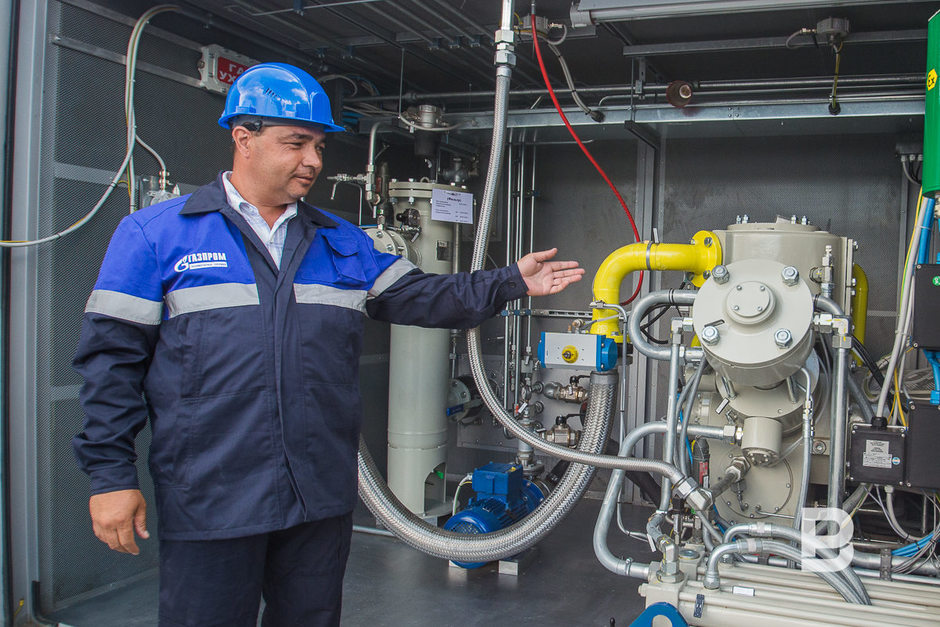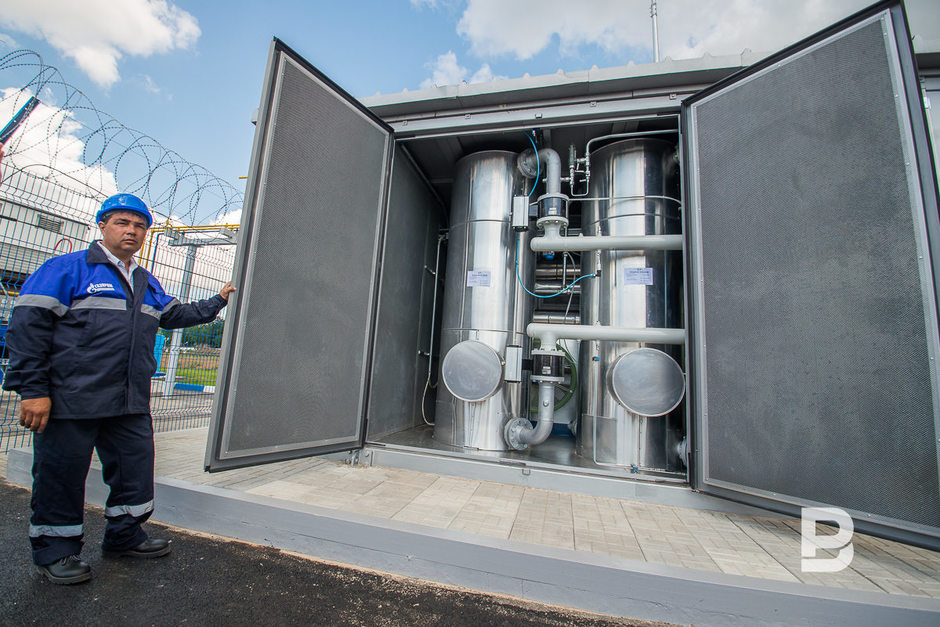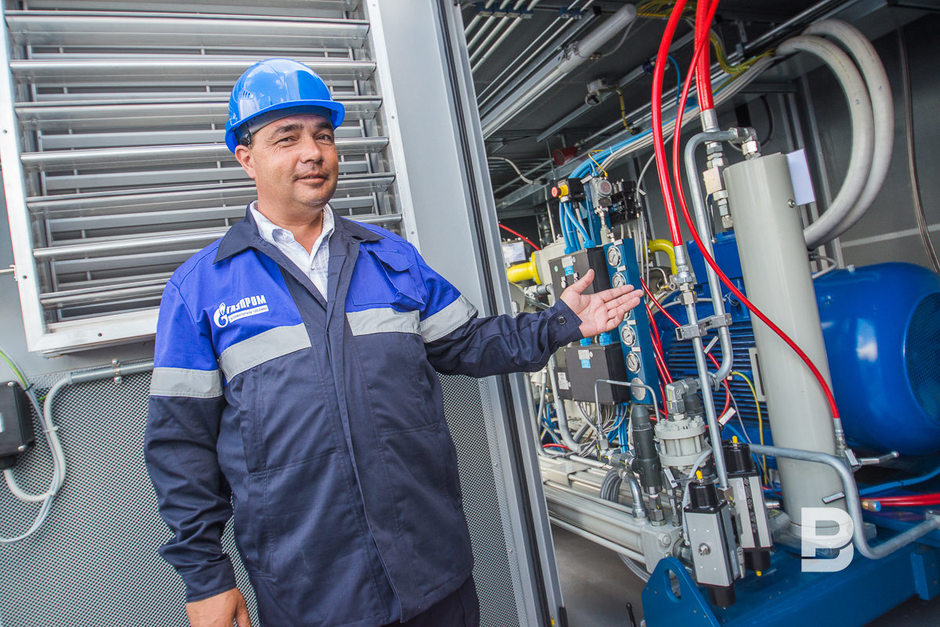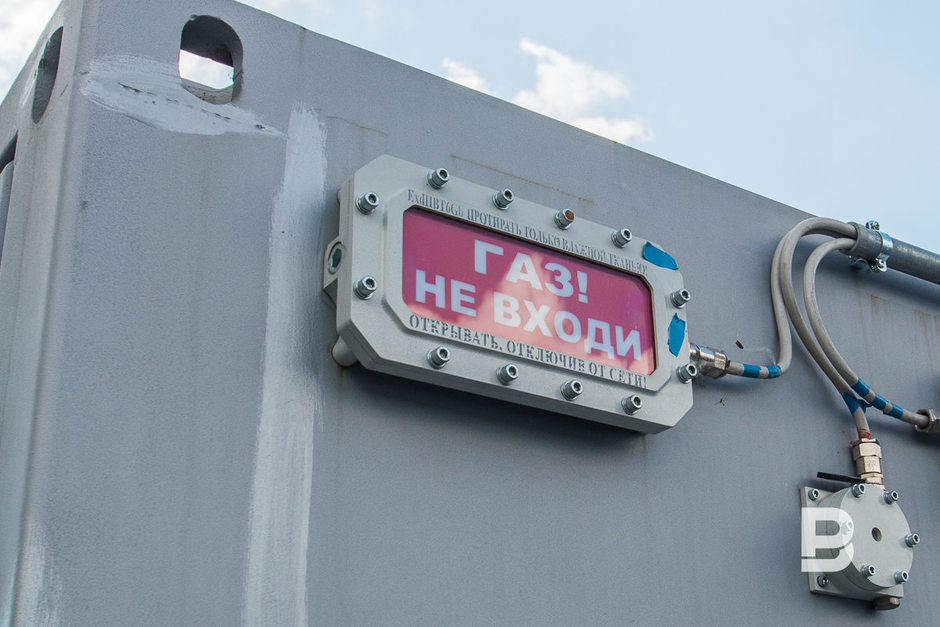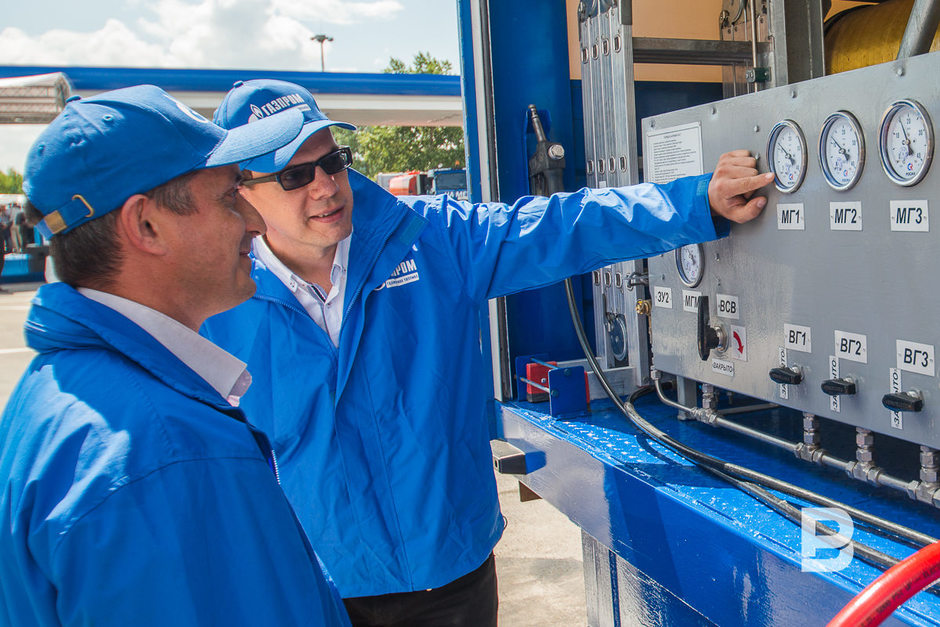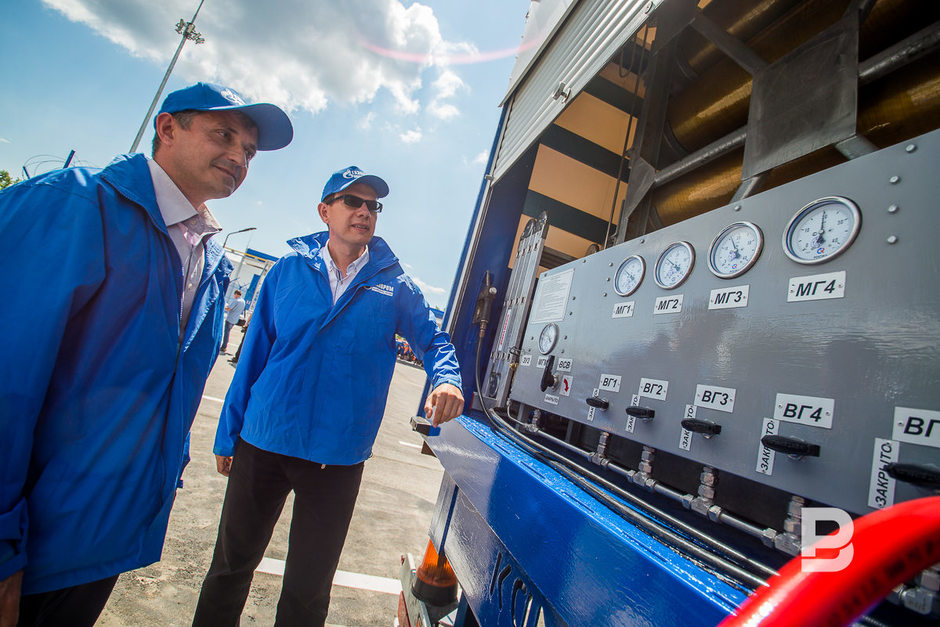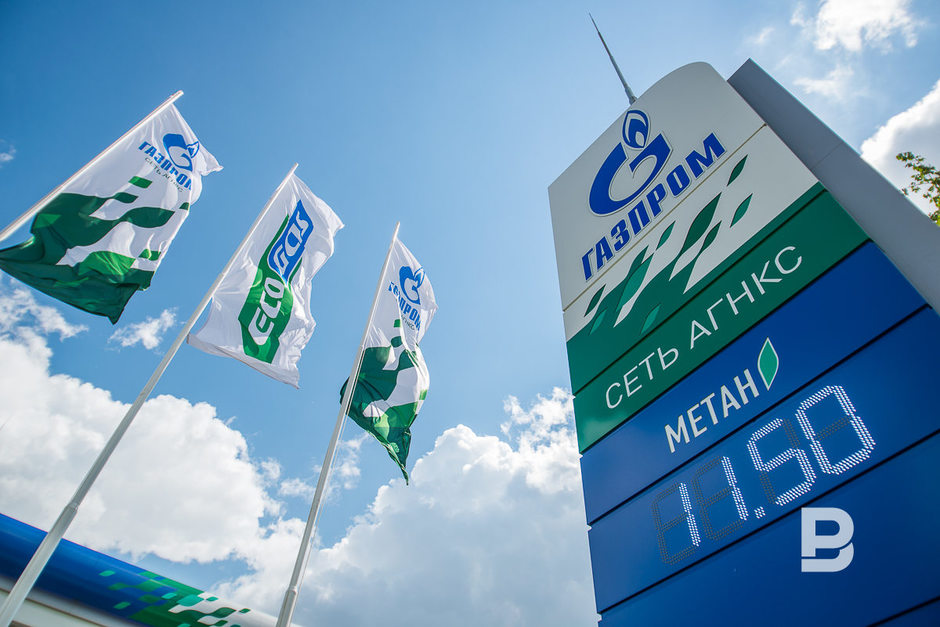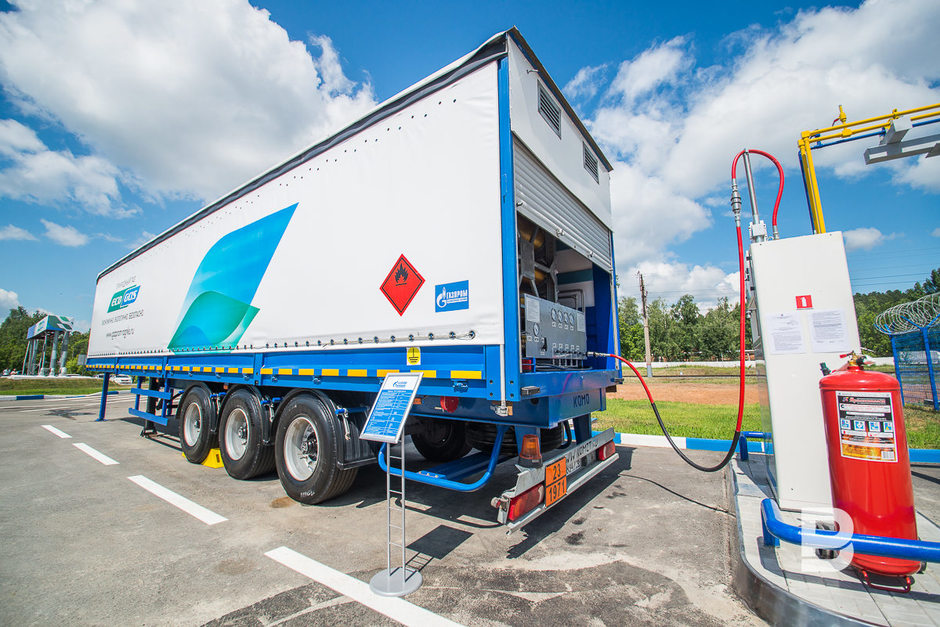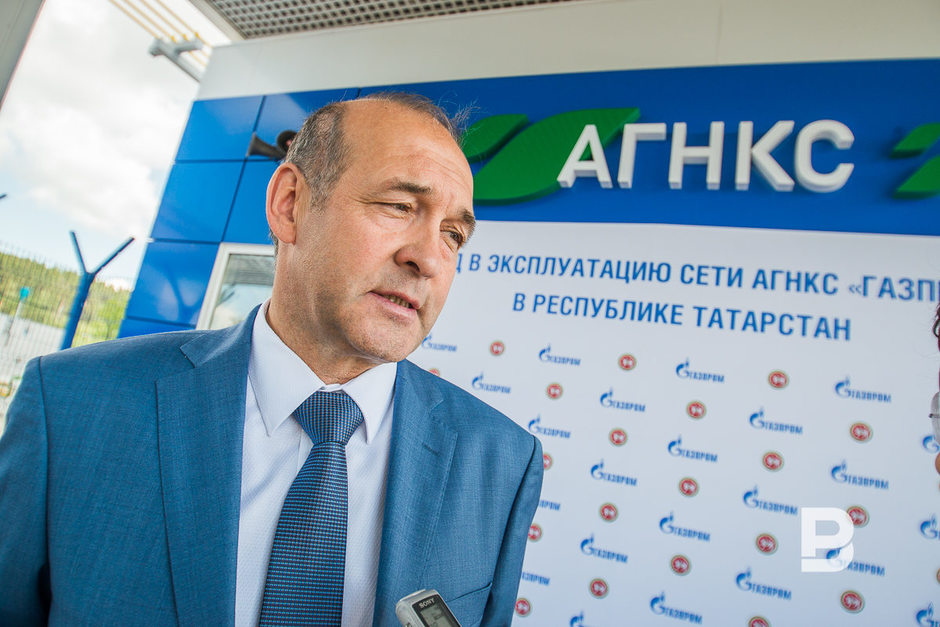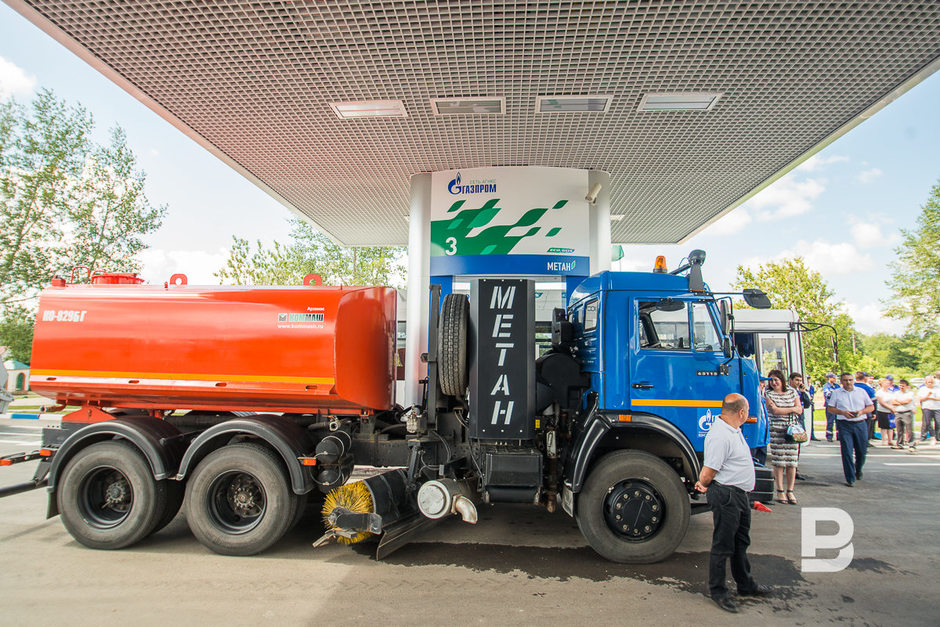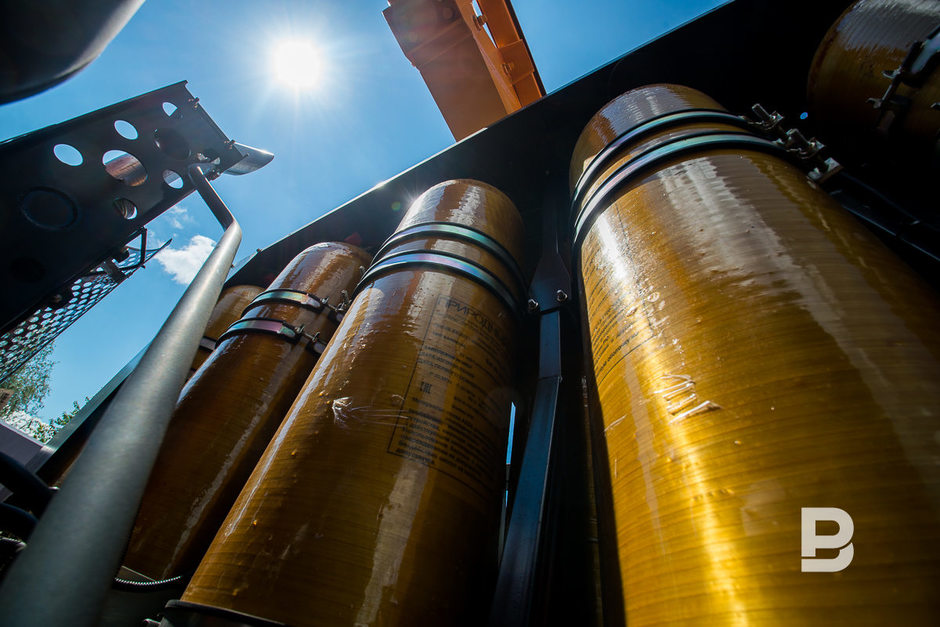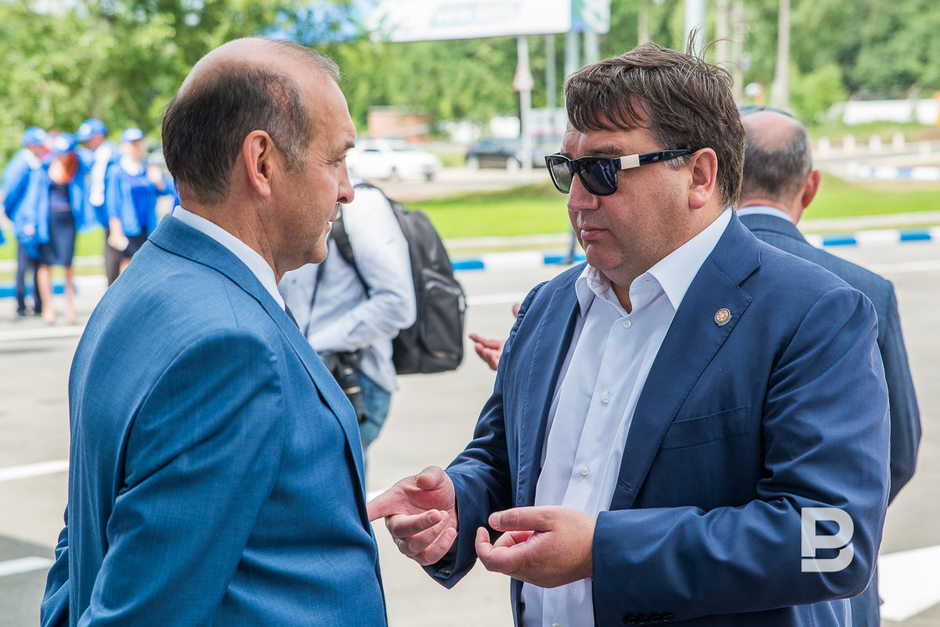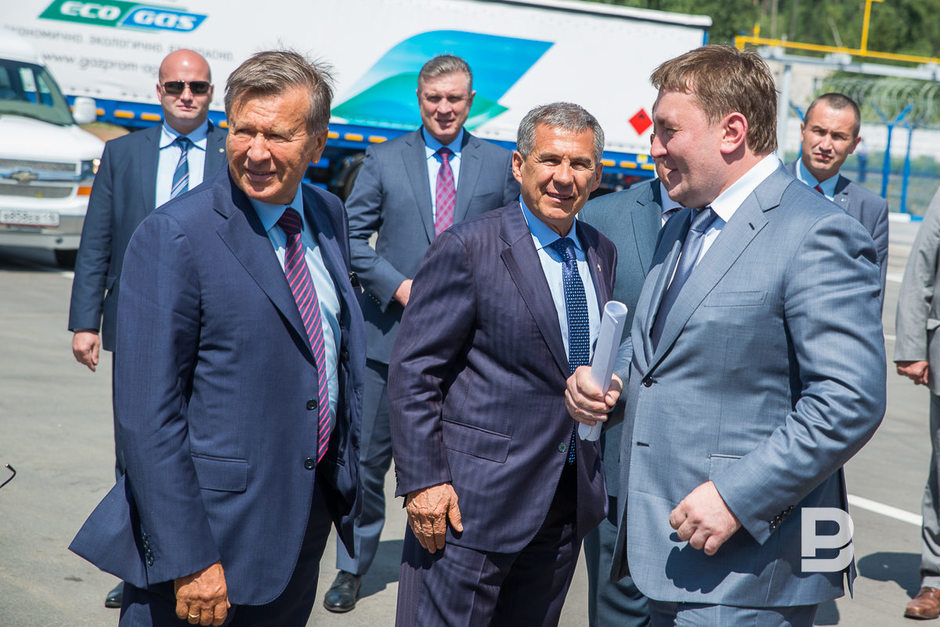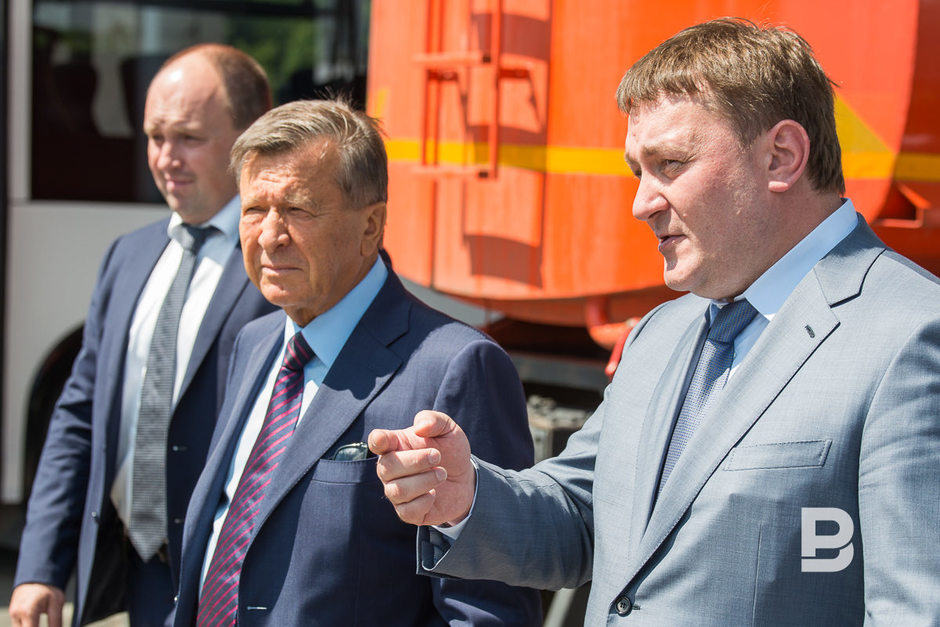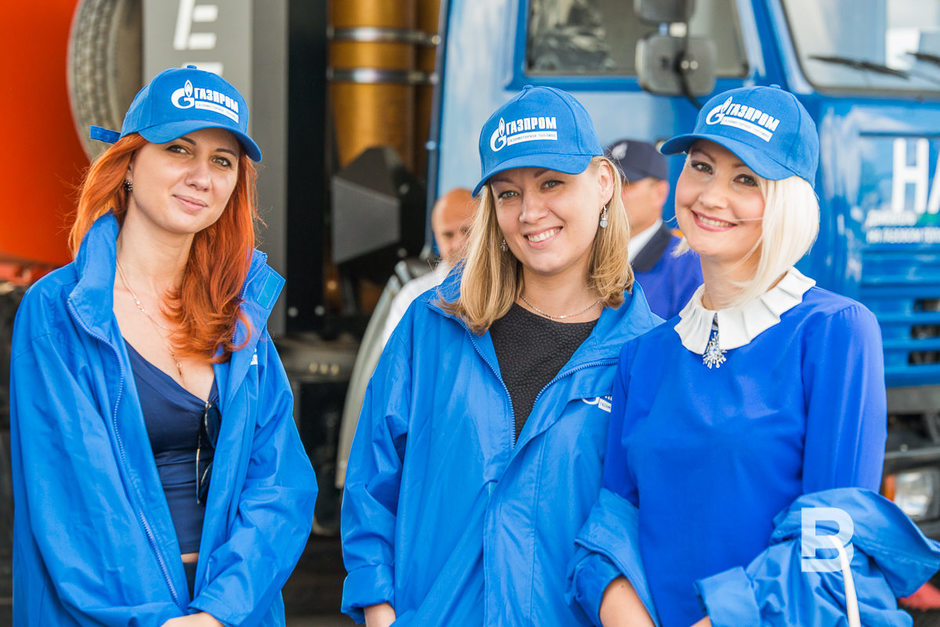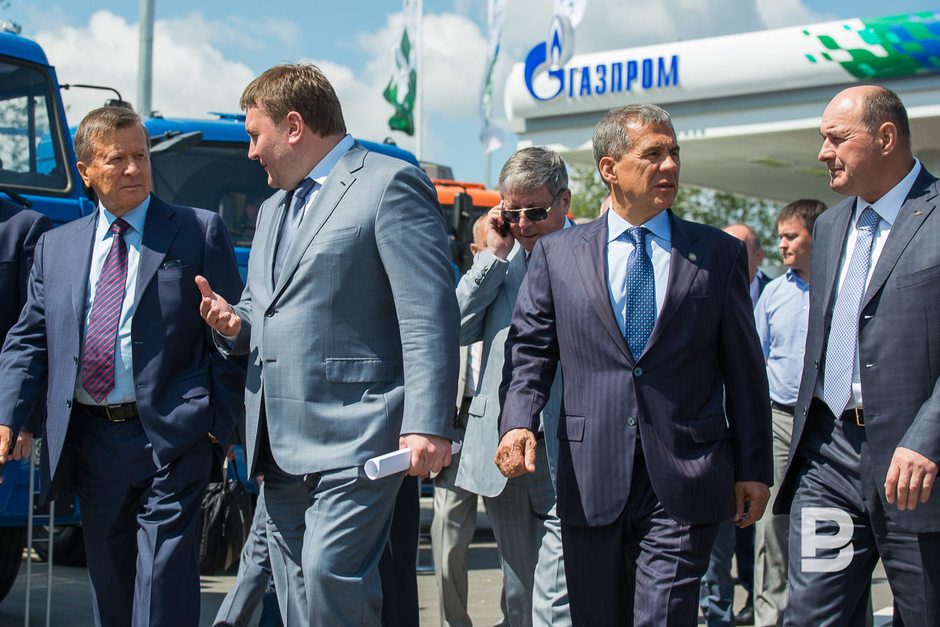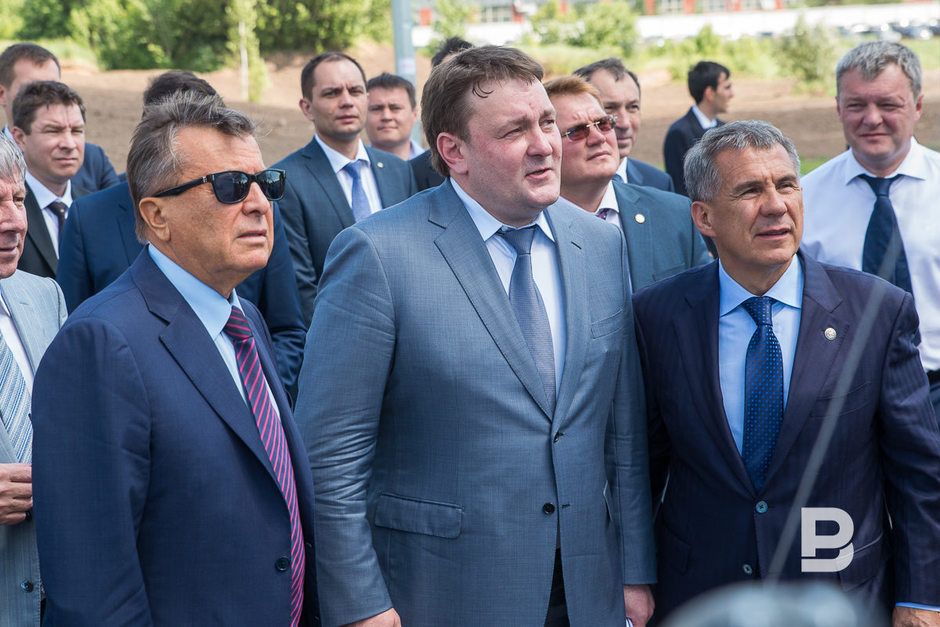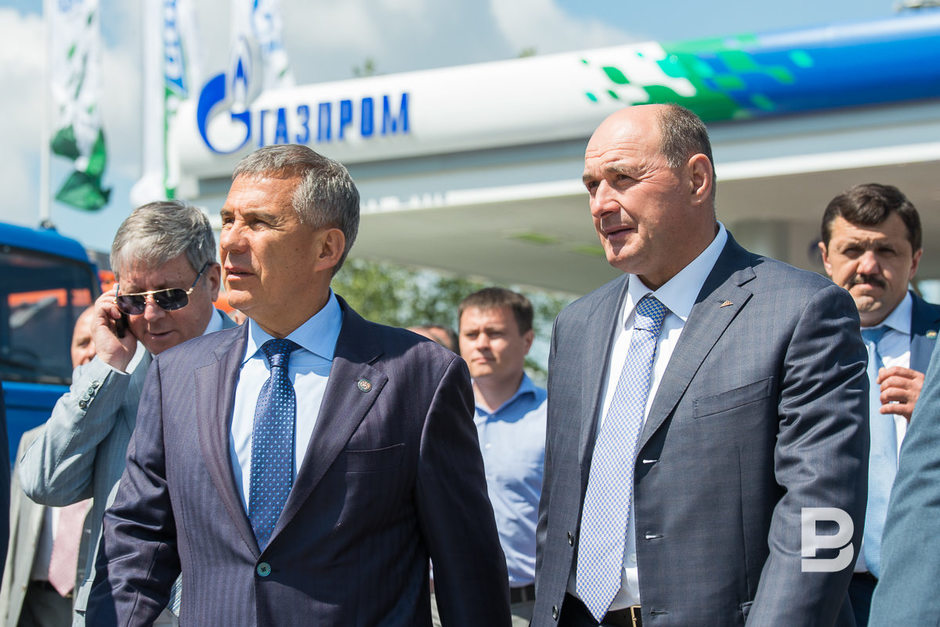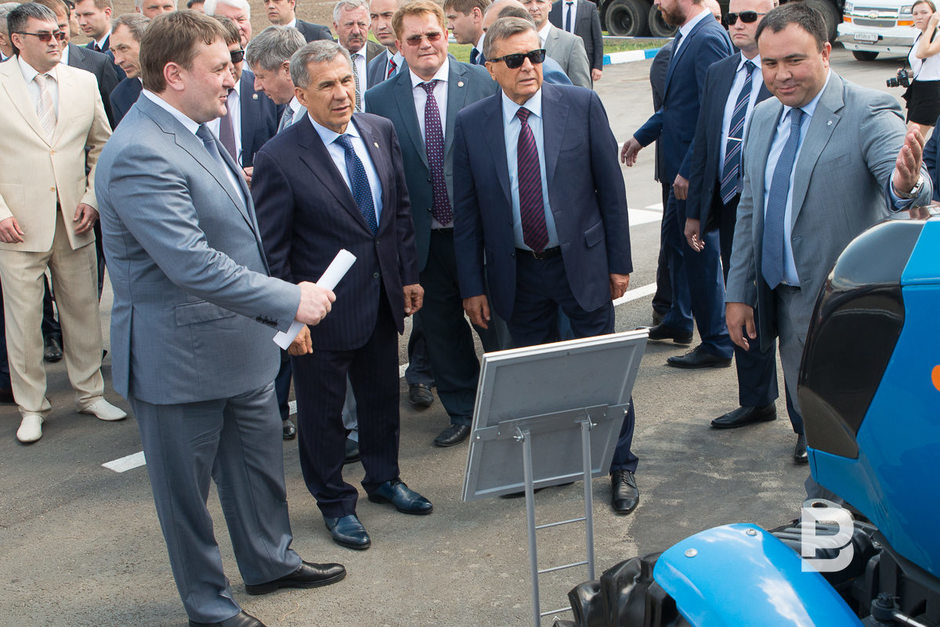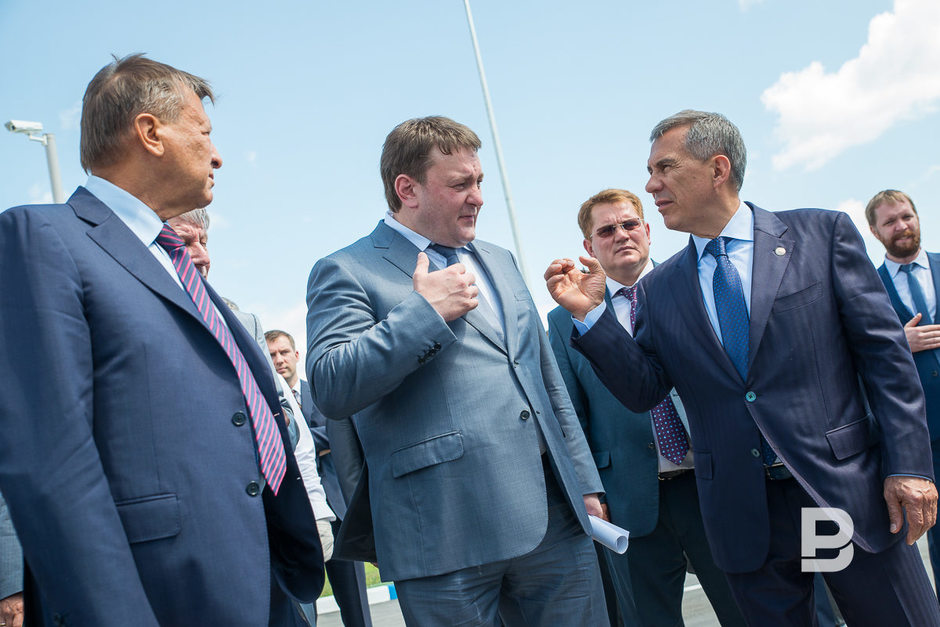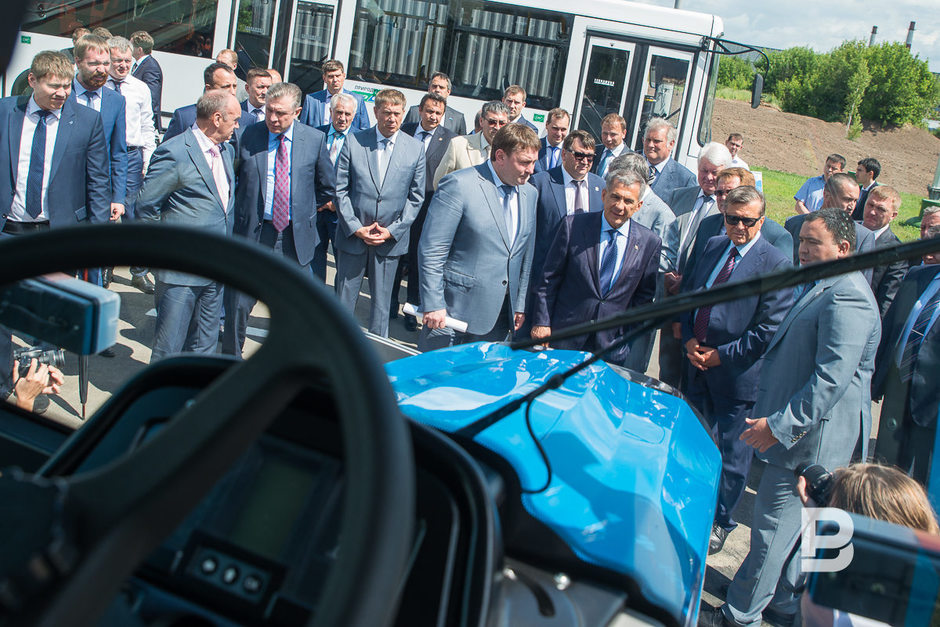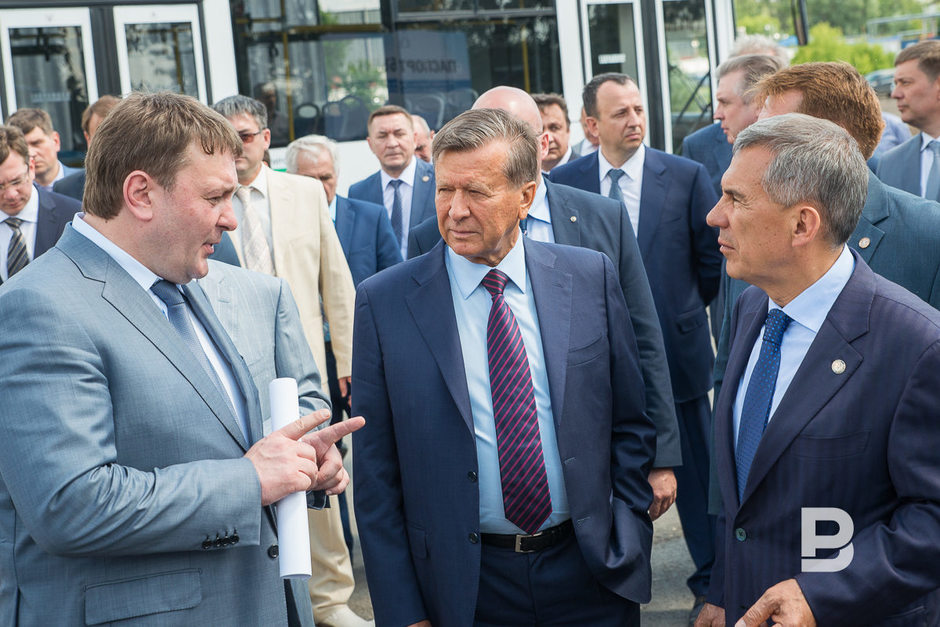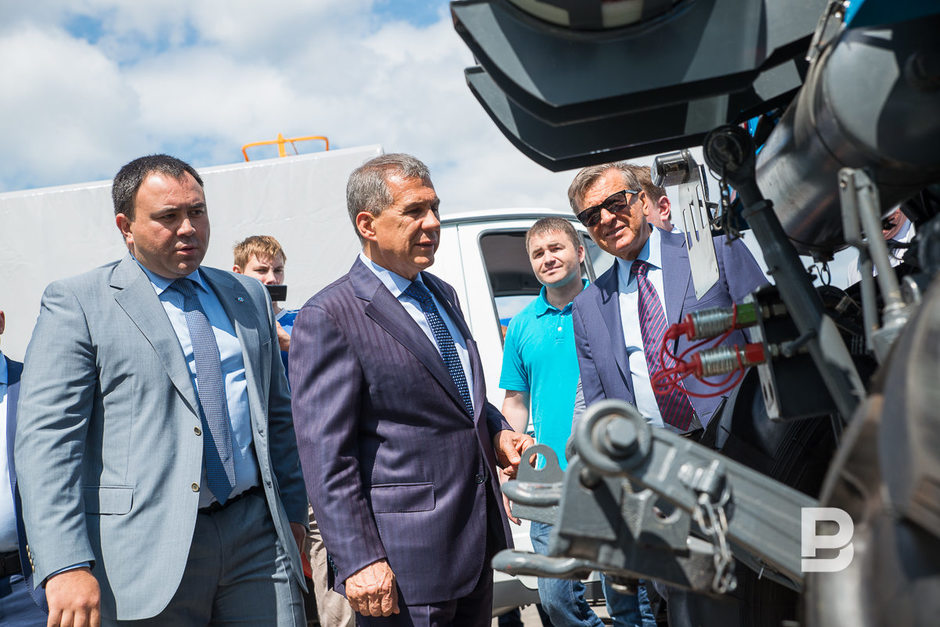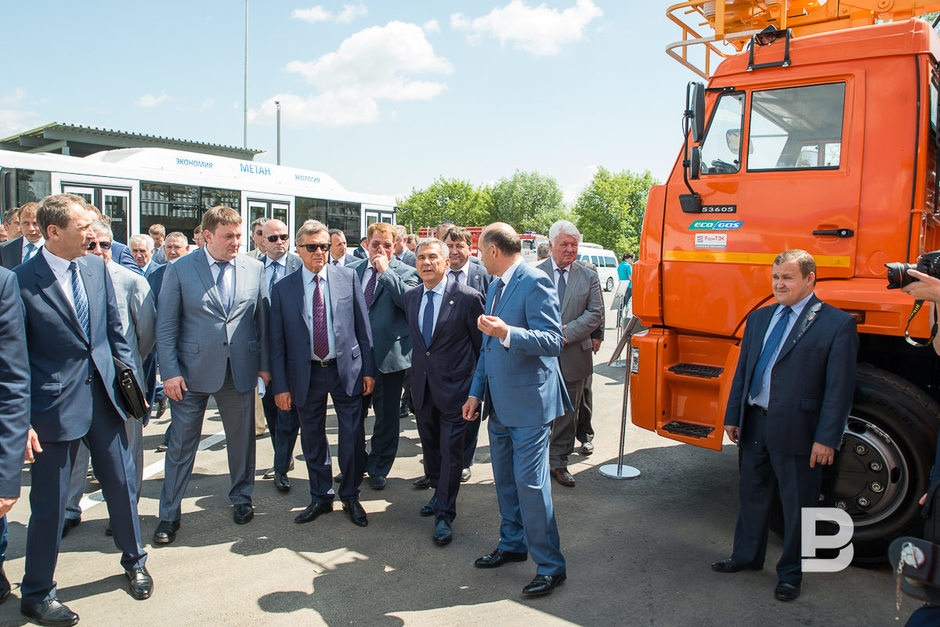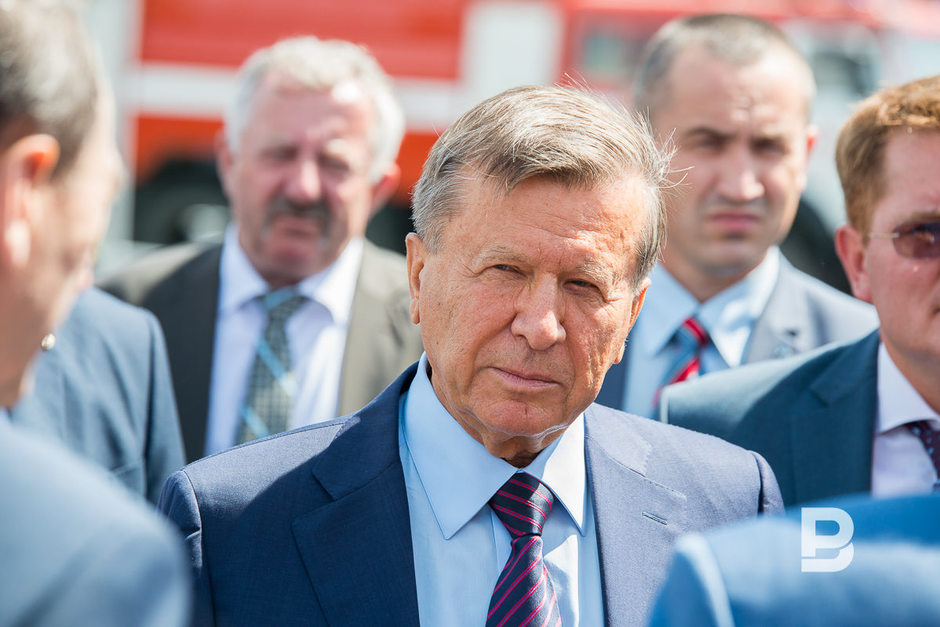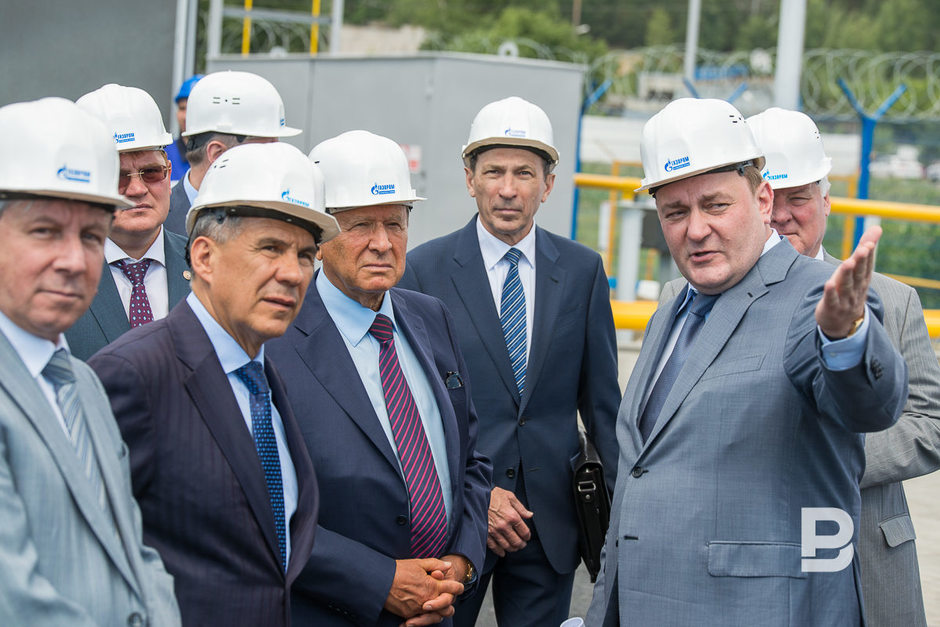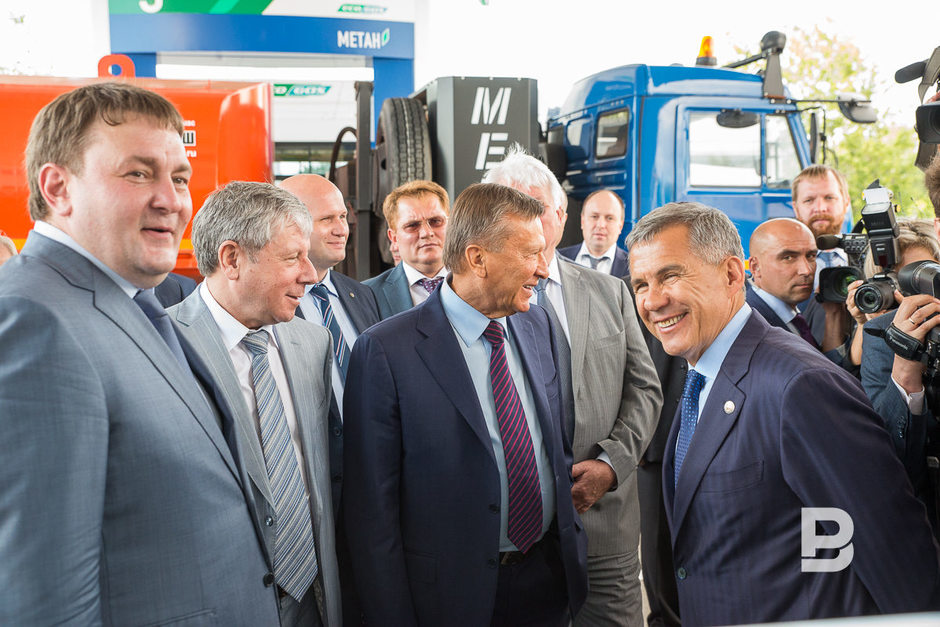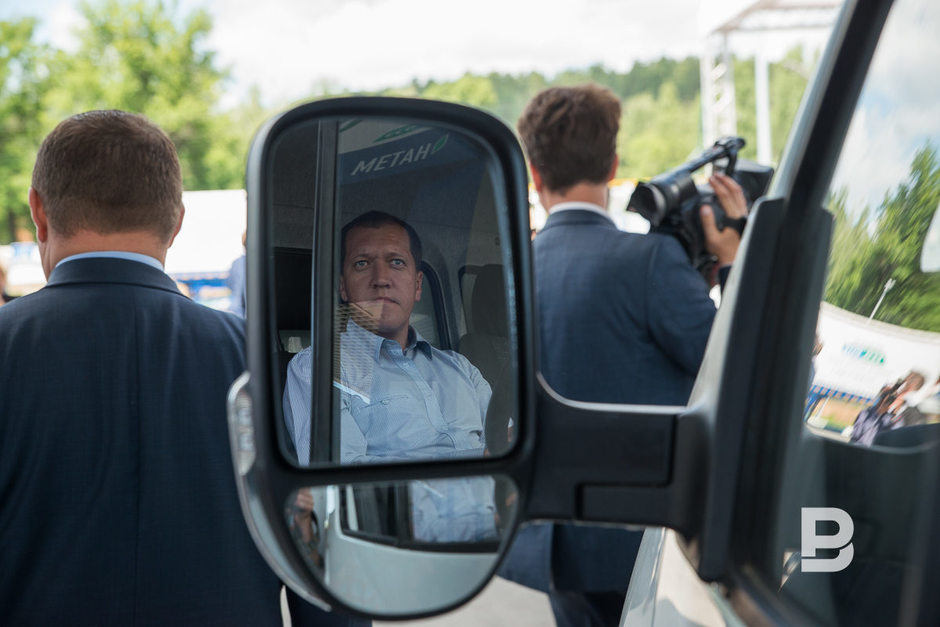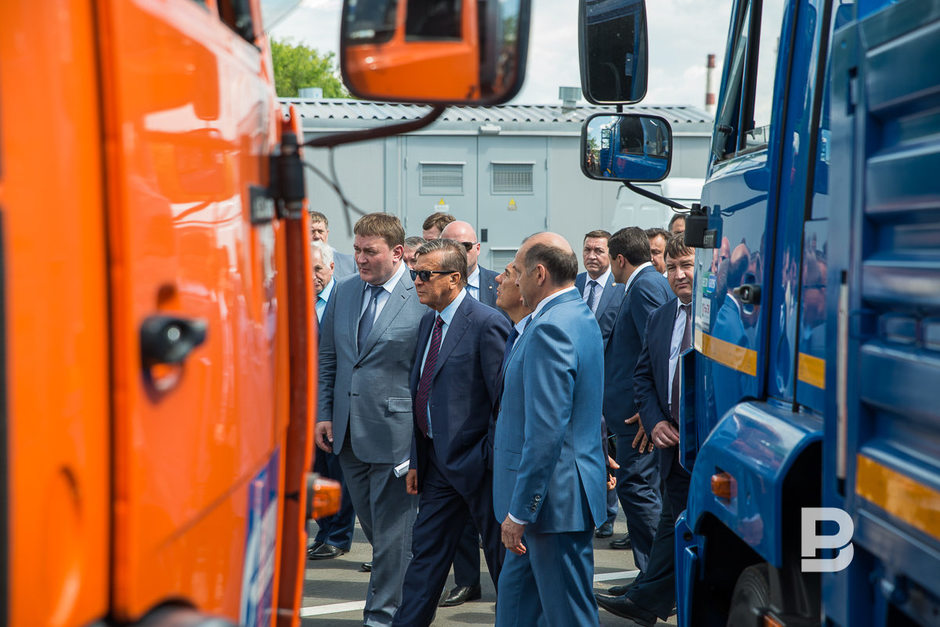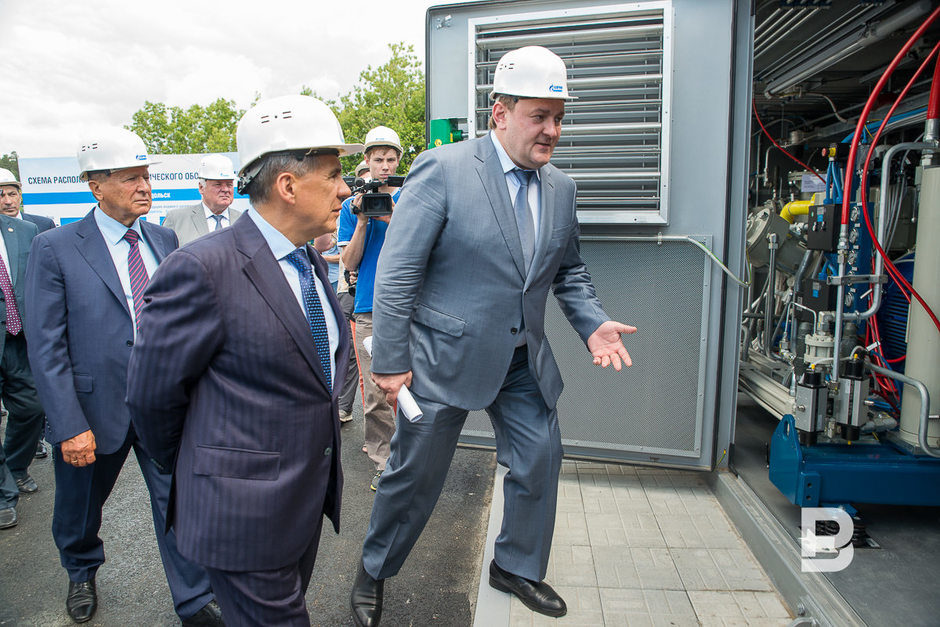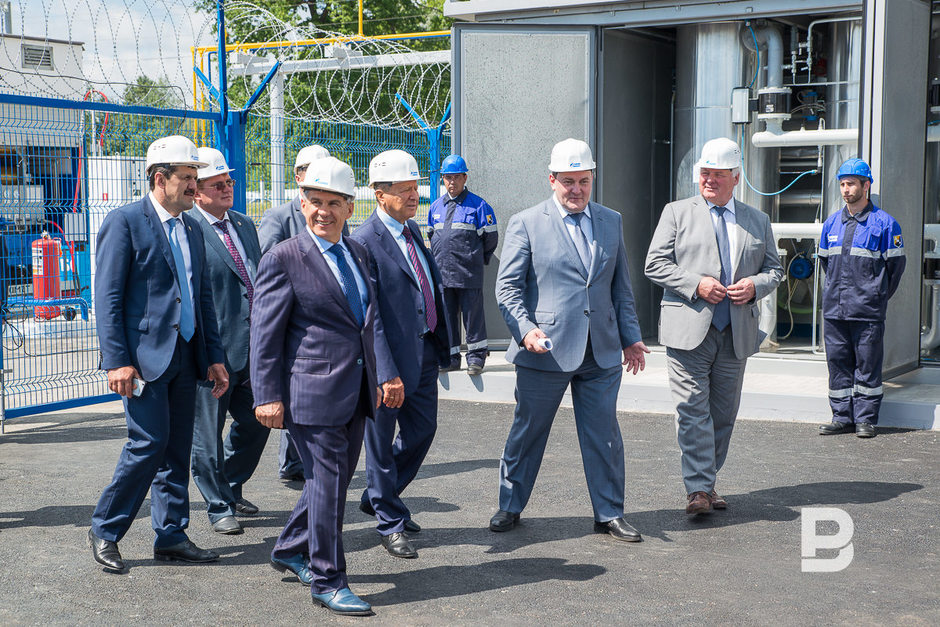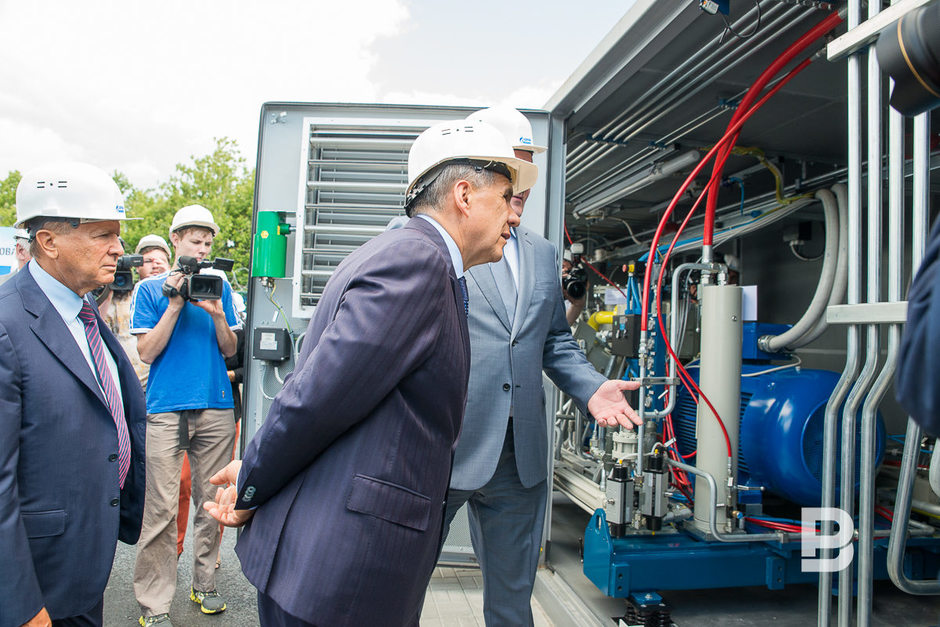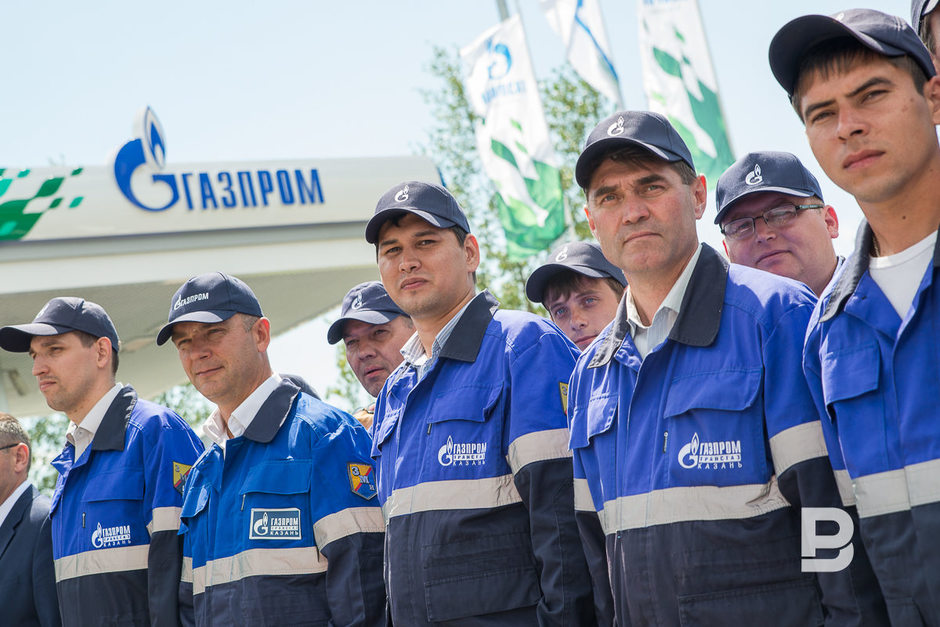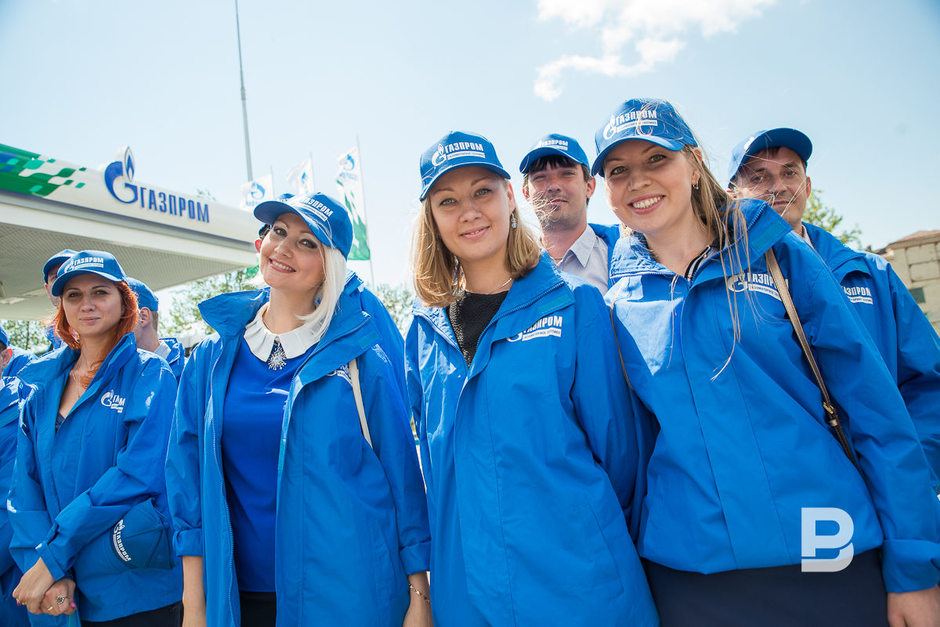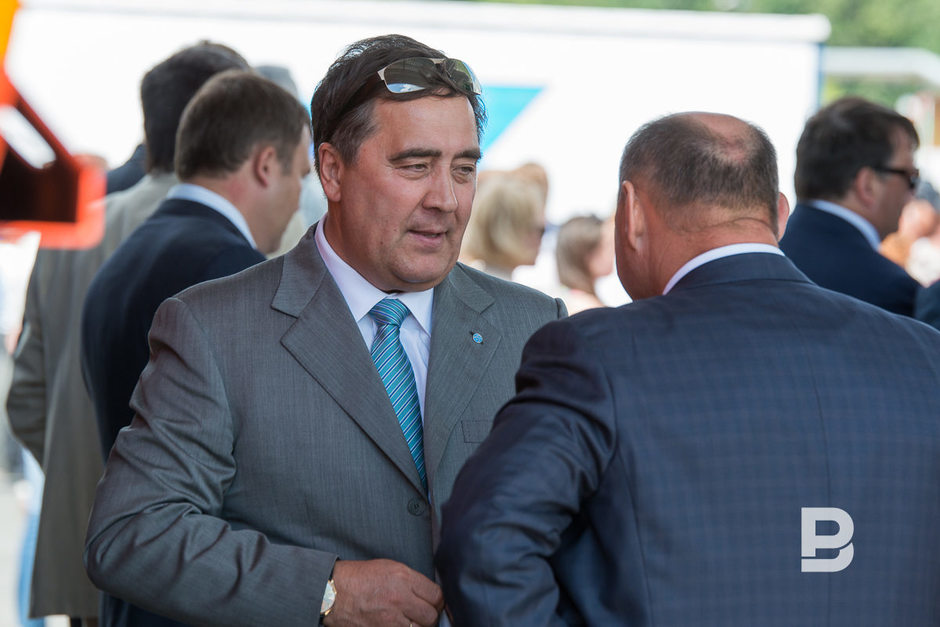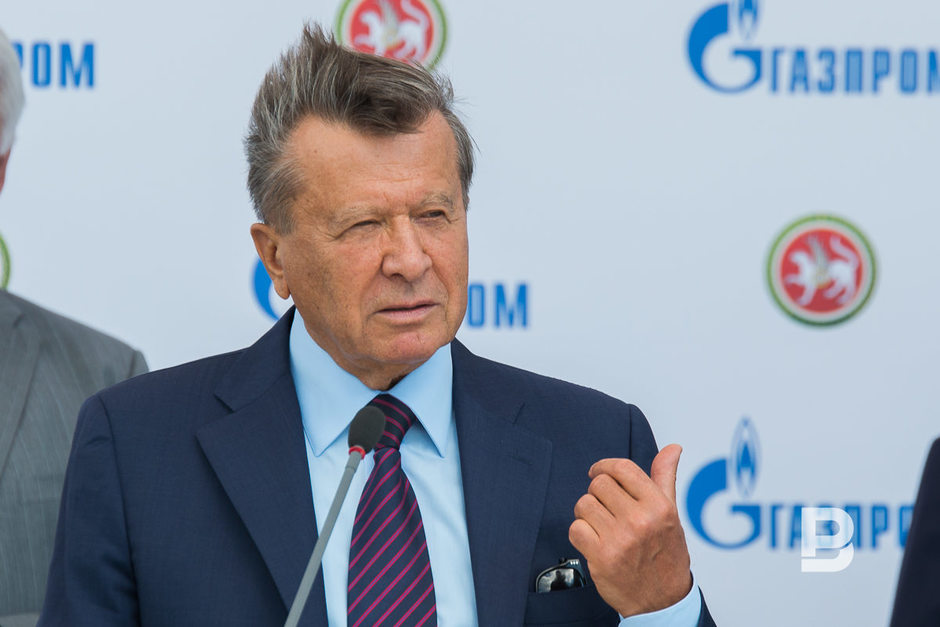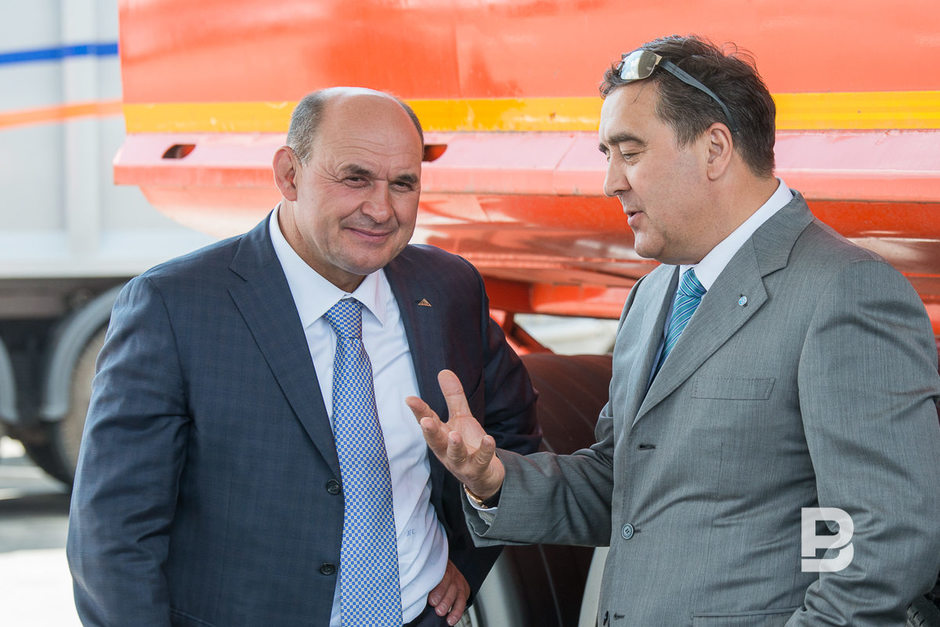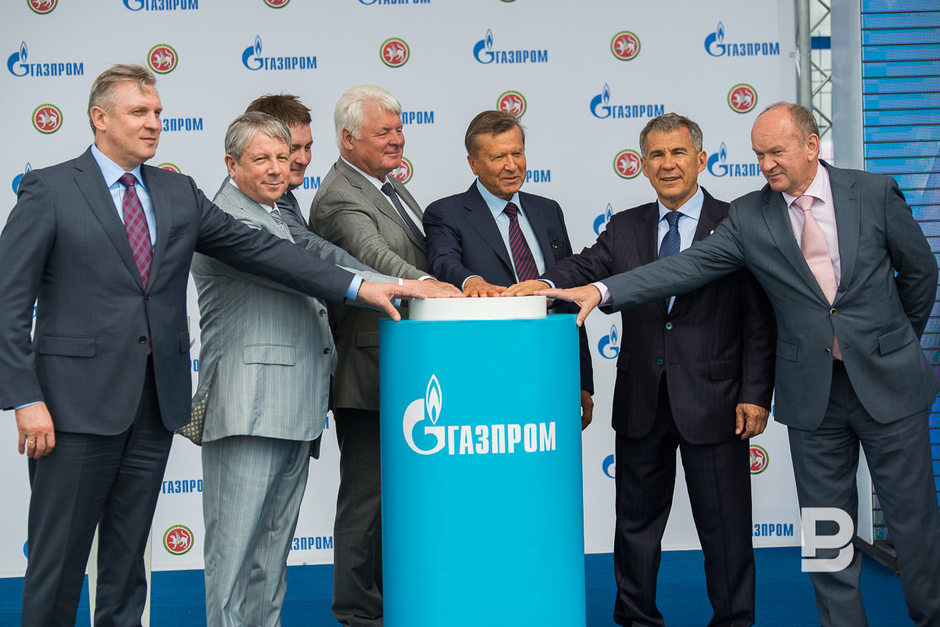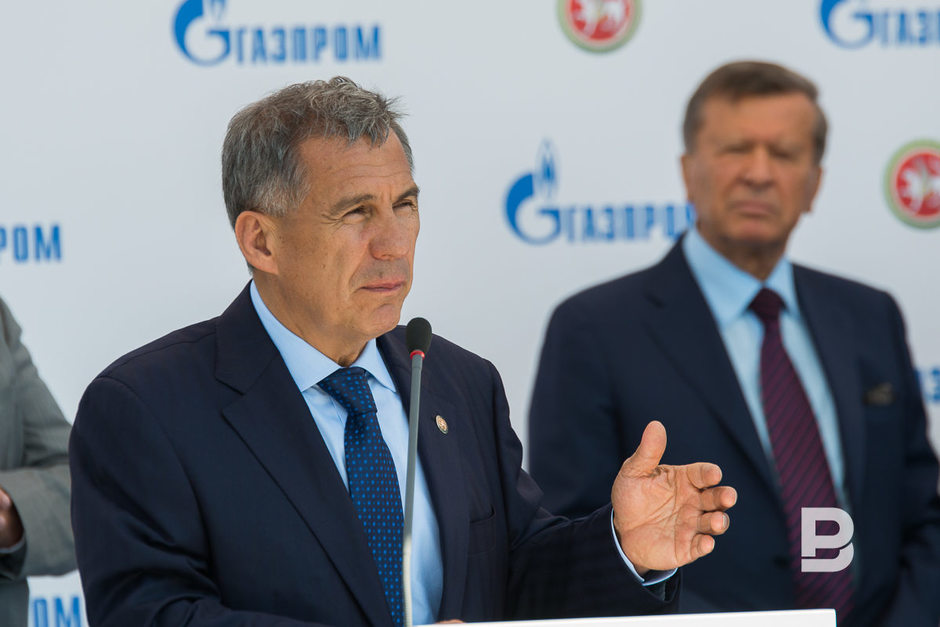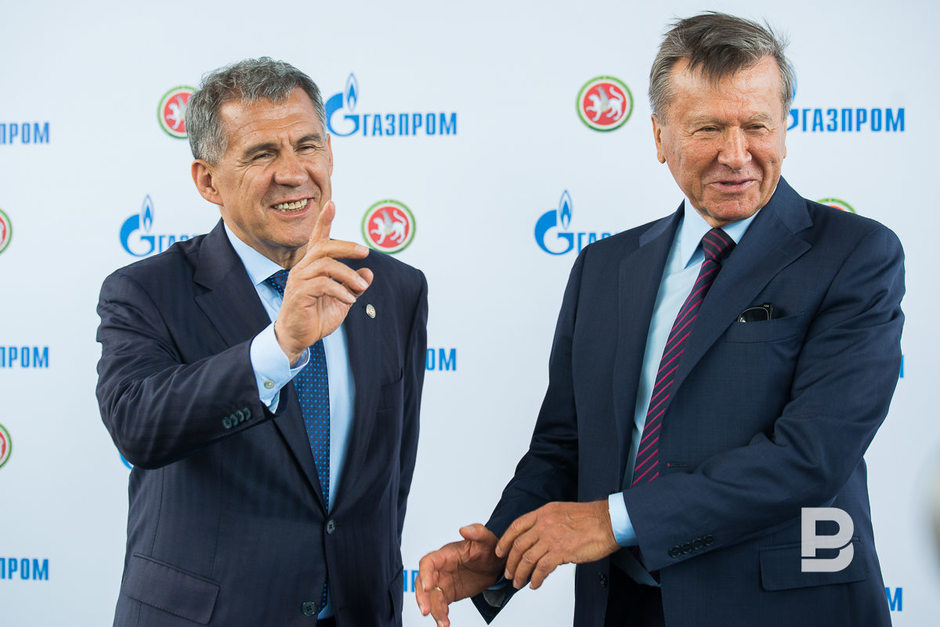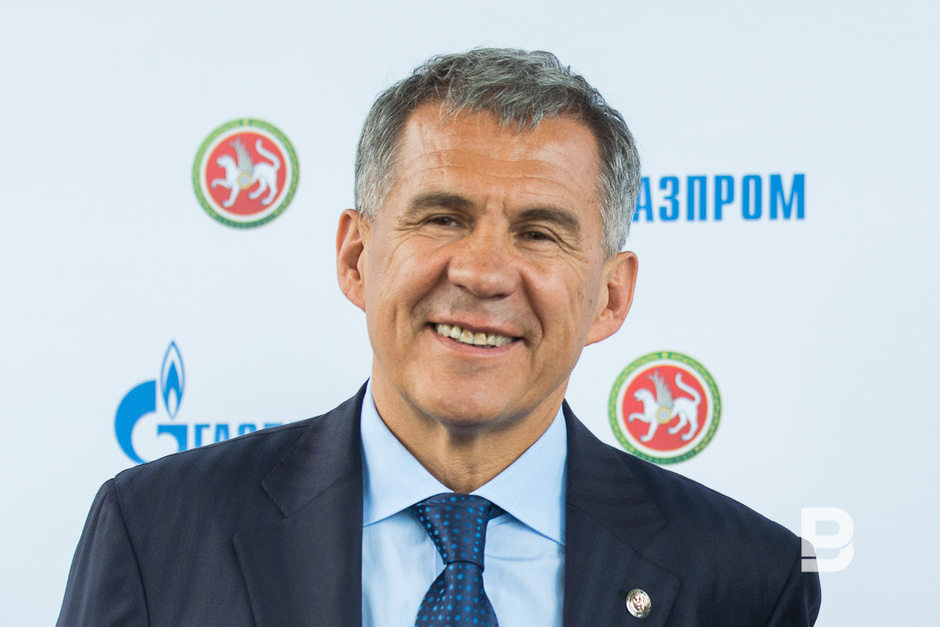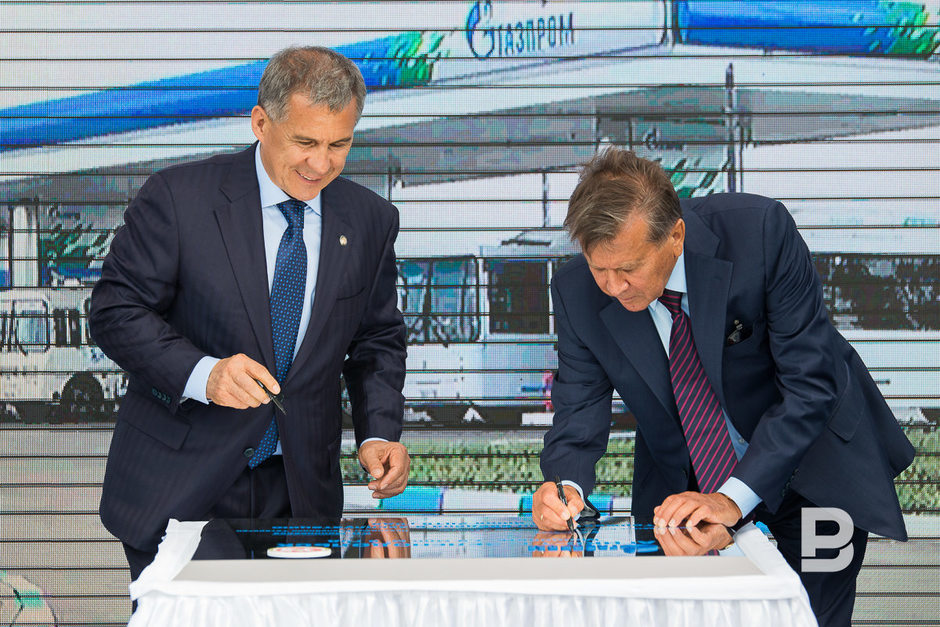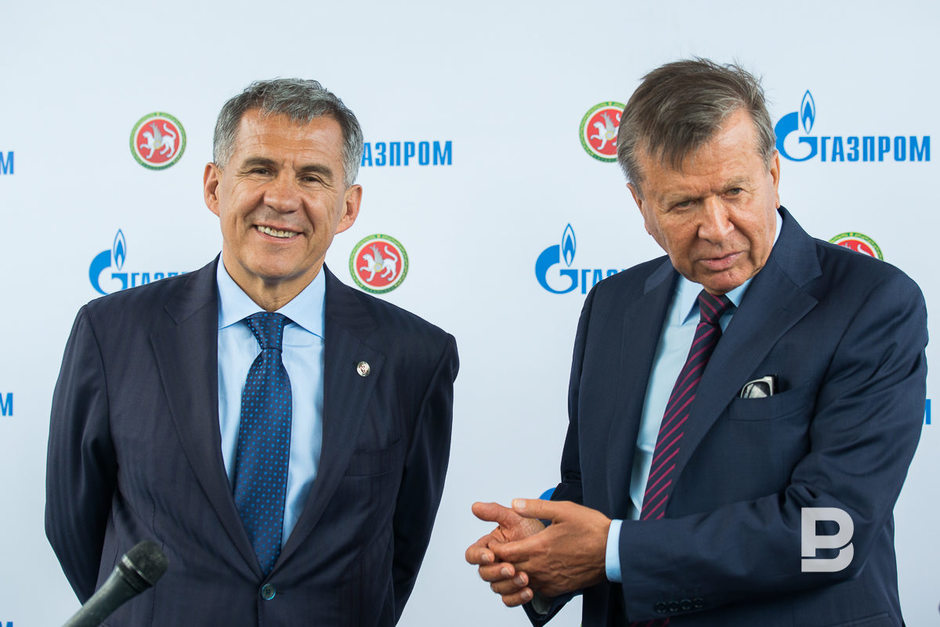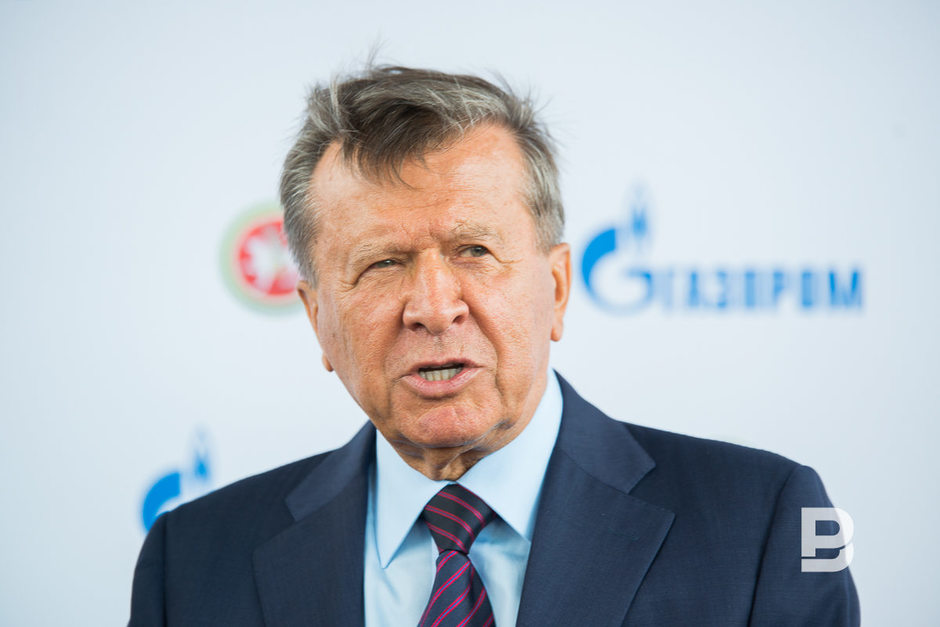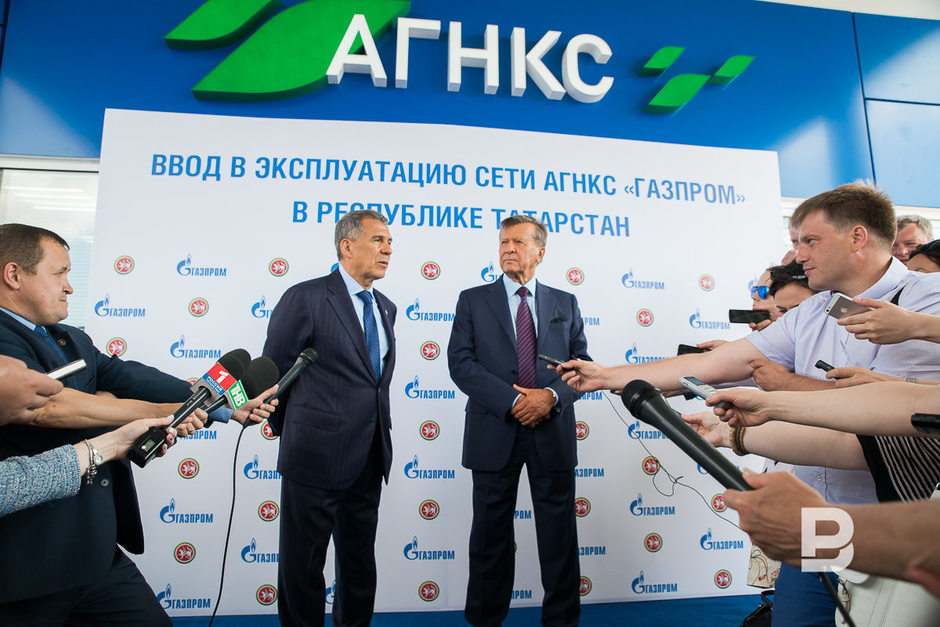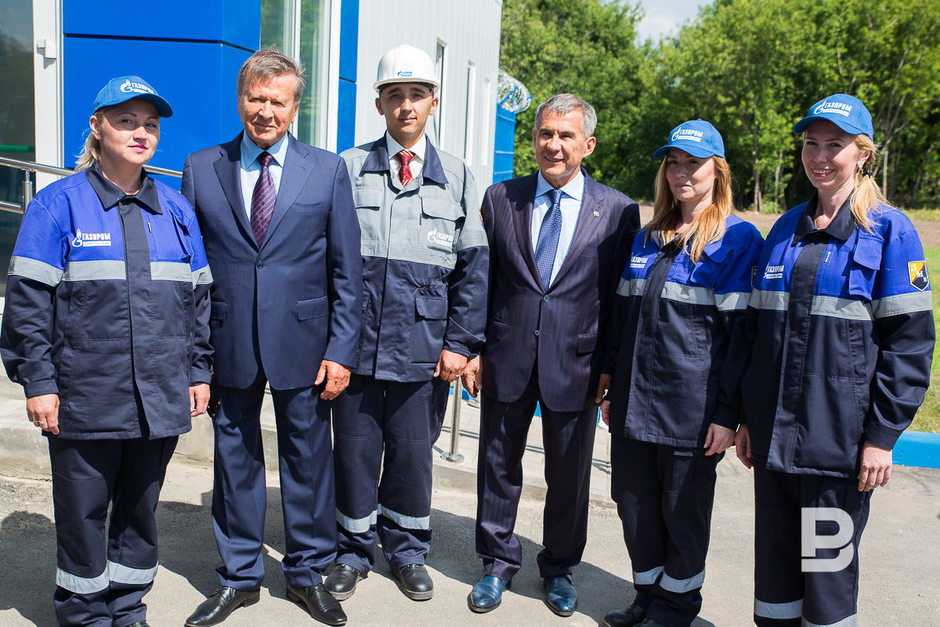Viktor Zubkov, Gazprom: ‘We met with Rustam Nurgalievich and…’
The constructed automobile on methane is still more expensive that a diesel one by 18-20%
Despite the low load of gas filling stations in Russia, Gazprom is determined to build a huge network of gas filling stations in the country. On 23 June, at the opening of other three automobile CNG filling stations in Tatarstan, the chairperson of the Board of Directors of Gazprom Viktor Zubkov announced the intentions of the Russian gas monopoly to invest 80 billion rubles in the construction of new stations – up to 480-500 by 2020. Although few people believe in these fantastic prospects, Tatarstan is actively built in 'the gas flow': by 2018, CNG filling stations will be in all major cities of the Republic that will allow to tranfer all public transport to gas.
We are building for the future
On 23 June, the chairperson of the Board of Directors of Gazprom Viktor Zubkov and the top management of the state concern, not available in usual life, found time and arrived in Kazan. Of course, here they were awaited: in the three major cities of the Republic — Zelenodolsk, Nizhnekamsk, Bugulma – there have been built three new automobile gas filling stations. They are not ordinary steel columns, but they are large modern filling stations for 4-5 filling posts. If while driving on the road not to notice the blue logo of Gazprom, it can be mistaken for a conventional gasoline filling station. The design of the gas network is similar to the petrol filling stations of Lukoil or Tatneft. However, there is no the typical smell of 'black hydrocarbons', what is quite unusual.
They had something to please the arrived in Zelenodolsk chairperson of the Board of Directors of Gazprom Viktor Zubkov: the design capacity of Zelenodolsk CNG stations, it is possible to say, has the explosive power up to 7 million cubic meters per year. It's very, very much. It is as much as 'the gas-motorists' of the Republic fueled in 2013, told one of the gas workers to the correspondent of Realnoe Vremya to make a strong impression. However, the opposite happened. The correspondent asked 'stupid' questions. For what reason to build a superpower station if the motorists still do not hurry to use cheap and environmentally friendly fuels? From the subsequent dialogue it came out that Garzprom, of course, is concerned with the low workload of the stations, but it still works for the long term and builds for 'the growth': the capacity of the Nizhnekamsk is 8.9 million cubic meters per year, of Bugulma – 7.9 million cubic meters. That means that only these three new stations are able to cover current annual demand of Tatarstan in alternative fuels.
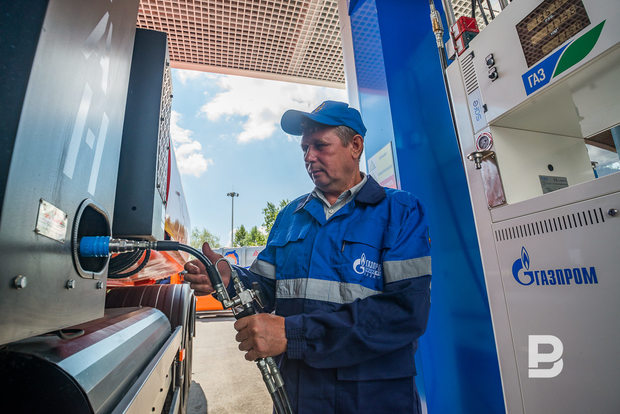
'We sell cheap gas'
However, the operator of the gas network construction programme 'Gazprom gas-engine fuel' does not see in new construction an excess: until the end of 2016, there will be built and put into operation other six stations. The total investment volume in the development of the NGV infrastructure will amount to 1.5 billion rubles. In total for three years since the signing of the strategic agreement between 'Gazprom gas-engine fuel' and Tatarstan there have been built 18 stations, and by the end of 2018 its number will increase up to 25, which will cover all cities of Tatarstan. By 2023, it is planned to build up to 60 CNG stations in Tatarstan.
'When the programme was being conceived, I thought, which region is the most advanced, that will not fail,' began with the memories of three years ago Victor Zubkov. 'We met with Rustam Nurgalievich, assessed the programme, and what we see now – that's lovely gas stations. There are no such in Europe,' he said enthusiastically. 'They can fill up 500-600 cars per day, and the motorists can save on fuel. We sell cheap gas: the cost of 1 cubic meter is 11.5 rubles, and if you drive to a traditional gas station, you will have to pay for a liter of diesel 35-36 rubles. That is almost 3 times cheaper,' continued to persuade the head of Gazprom.
He informed that the infrastructure construction for the development of gas-engine fuel market will be continued. This year in the country there will be introduced 36 new modern stations and 4 are being under reconstruction, the next year – almost 56 stations. In the future, the gas monopoly plans to spend 80 billion rubles to increase the number of stations from 220 to 500.
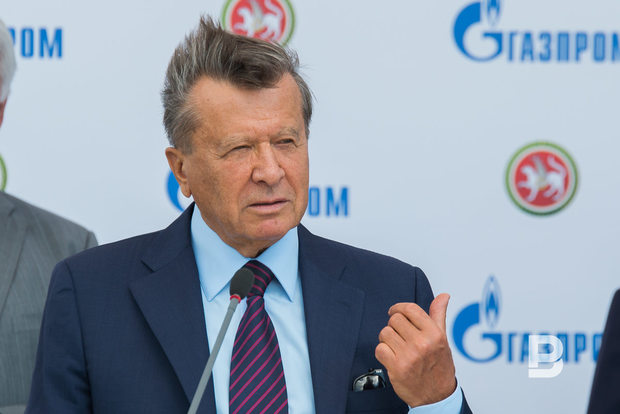
A methane car is still more expensive
'Of course, we would like the regions did not lag behind us and provided 100% load (now it is 26.2% – editor's note),' said Viktor Zubkov. Throwing a hint to the regions, he also acknowledged that they need to solve the problem of the cost reducing of gas cars.
'We are now thinking what to do in order the constructed automobile on methane was not inferior in the price of a regular one. Now they are by 18-20% more expensive, so people choose the traditional cars on diesel, although you lose on the cost of refueling.'
Now, the transition to natural gas is stimulated by a variety of federal programmes. Last year, Tatarstan received 764.36 million rubles of federal subsidies for the purchase of CNG vehicles (funds are allocated on the terms of co-financing of regional and local budgets). Among 29 subjects of the Russian Federation participating in the state programme 'The Development of industry and the increase its competitiveness', the Republic of Tatarstan received the largest amount of state support. For these funds they purchased more than 300 units of equipment. What is more, they purchase not only buses to transport passengers, but also for municipal vehicles for housing and communal services. This year, the Ministry of Industry and Trade has announced a tender among the regions to subsidize purchases at the amount of 3 billion rubles. Tatarstan has applied, but the results are still unknown.
Answering the questions to the media, the Tatarstan President stressed that the challenges that the Republic is facing are major.
'We are at the stage of creating the production of liquefied natural gas,' he said. 'The LNG market is huge, it includes rural settlements, housing estates where it is not feasible to lay the pipeline, as well as utility and road sectors. Thus, in addition to the transport direction, we get other opportunities to use LNG.'
